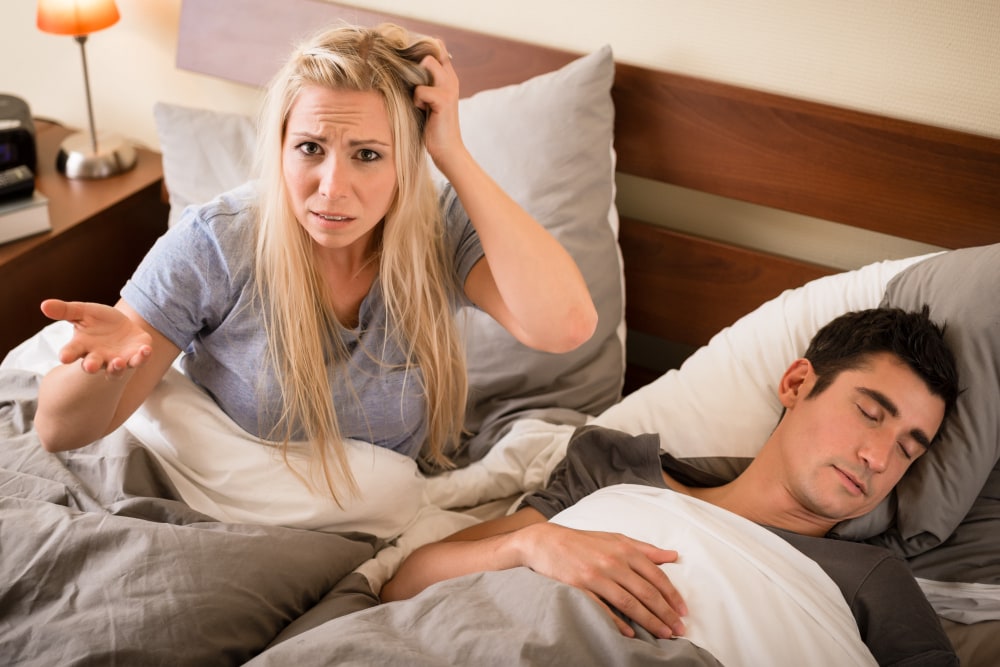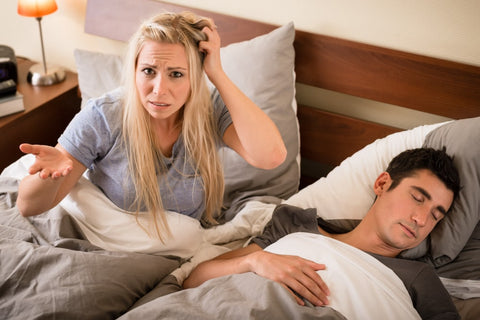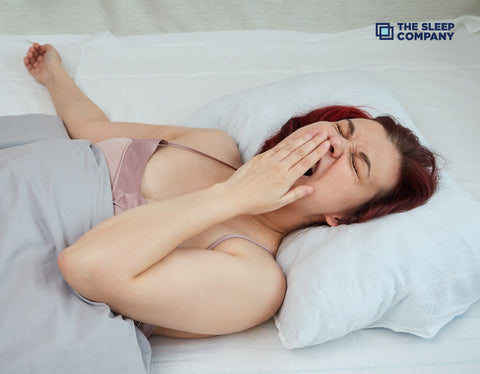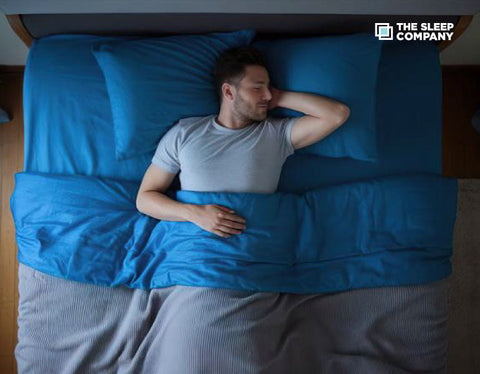My Cart

Are You a Sleep Talker?


Have you ever been told by your partner that you disturbed their sleep at midnight by talking in your sleep? Or have you ever had a laugh at your partner or family member for their shouting out at some random person during sleep and forgotten as soon as they wake up in the morning?
Well, sleep talking is much more common than you might think, and everyone has done it at some point in their life at least once. Sleep talking by self or others seems like a funny incident that gives us a good laugh. But is sleep talking really that simple, fun occurrence, or has some serious consequences and reasoning behind it?
Let’s learn more about the causes and therapies for sleep talking.
What is sleep talking?
Sleep talking or Somniloquy is a type of parasomnia, an aberrant behavior that occurs during sleep. However, unlike other parasomnia acts, sleep talking not only occurs in specific parts of sleep but during REM (rapid eye movement) or non-REM sleep.
Out of three, two people talk in their sleep, and it’s a common sight in children specifically. When you speak in your sleep, you can talk about anything from complete sentences to shouting, different tones, and sometimes different languages.
Stages of Sleep talking:
One can divide sleep talking according to sleep stage and severity of speech occurrences.
Stage 1 and 2:
In stages 1 and 2, the person isn’t in a deep sleep stage, and their talk is easy to understand.
Stage 3 and 4:
In stages 3 and 4, the person is in a deep sleep, and their speech is more gibberish or intangible.
Occurrence
Mild:
It’s a blue moon incident that occurs once a month or months.
Moderate:
Sleep talking occurs a number of times in a month or a week but not every day.
Severe:
It occurs regularly and might disturb partners or family members sleeping in the same room.
What are the signs that you are sleep talking?
 .
.Interestingly, a person who sleeps talks can not realize that he is doing it unless other people who heard it tell him. Sleep talking doesn’t have much of a sign recognizable by the person doing it as they mostly do it in a deep sleep and forget as soon as they wake up.
Is it common?
Sleep talking is a common activity found in most people worldwide. Most children and older adults are prone to talk in their sleep; contrary to that, they talk a lot when awake.
More than 90% of people experience Somniloquy one or multiple times in their life and have heard from their family members about it.
Why does it happen?
Scientists are still analyzing the real reason for sleep talking or Somniloquy. However, many think that sleep talking occurs when you dream, but that’s not the case.
According to some researchers, several reasons can cause sleep talking
- It could be genetic. If a child’s parents speak in their sleep, then the child can probably have the same habit
- Stress, fear, or some kind of disturbing emotion
- Alcohol or any kind of drug consumption
- Medical condition
- Neurological disorder
- Post-traumatic stress disorder
- Sleep disorders like obstructive sleep apnea
- REM sleep behavior disorder
Is it dangerous?
Sleep talking is generally harmless and doesn’t cause a significant impact on overall health. However, it can cause some embarrassing situations and awkwardness between sleep talkers and other people who hear it due to incoherent thoughts spoken out loudly by the sleep talker that might be secret revealing.
Who is at risk of sleep talking?
Though Somniloquy or sleep talking is not dangerous, many find it embarrassing and consider it a risk of revealing their inner emotions and secrets.
People who are primarily at risk of sleep talking are
- Children
- People with health disorders
- Sick people
- People under stress or fear
- People addicted to alcohol or other drugs
- Who have suffered enormous loss or trauma
- Who is under medication course
How can you prevent it?
There is still very little information on sleep talking or Somniloquy, and the researchers do not entirely understand the concept. Because of this, there are very few techniques to stop sleep talking. Also, due to the harmless nature of sleep talking or Somniloquy, usage of medications seems unnecessary. However, anyone who wants to control their sleep talking must look after their sleep hygiene and environment.
The sleep hygiene one should implement in their routine to help reduce sleep talking or Somniloquy, such as:
1. Schedule
Create a sleep-wake timetable, and follow it regularly to avoid any sleep issues.
2. Avoid caffeine and alcohol
Avoid consumption of caffeine at least a few hours before bedtime. Also, avoid alcohol altogether as it is harmful and can cause several health issues, including sleep troubles.
3. Exposure to daylight
Exposure to daylight is an excellent way to get vitamin D and balance the production of hormones like cortisol and melatonin, which are wake and sleep-inducing hormones.
4. Exercise
Regular exercise reduces your physical stress and helps you sleep at night out of exhaustion. One can include yoga, Acrobatics, skipping, walking, or running exercises in their daily routine.
5. Pre-bed routine
Implementing a pre-bed routine helps you relate those activities to sleep, and specific signals are sent to the brain when you begin these pre-bed routine activities.
One can include reading, meditation, listening to music, massaging the head and acupuncture points on the hands and feet in a pre-bed routine.
Creating a sleep environment
To complement sleep hygiene, one must create a sleep environment, such as:
1. Darkness in bedroom
Darkness promotes the brain to create sleep-inducing hormones, melatonin. Therefore ensure that you switch off the lights in your room or dim lights if you are uncomfortable sleeping in the dark.
2. Cleanliness
Sleeping in dirty and unhealthy surroundings can create many health issues that further create sleep-related problems. Therefore, make sure that your bedroom is neat and clean.
3. Mattress
Mattresses are vital for comfortable sleep. When your mattress is old, weathered or torn, it can cause sleep issues. Therefore using a mattress that is not damaged or uncomfortable is essential. Also, people who sleep talk tend to do other physical actions like throwing punches, moving legs like running or turning involuntarily in their sleep due to the sequence of dreams they see. It can cause them to fall from the mattress or harm themselves. To avoid this, the usage of soft and comfortable mattresses becomes vital. The Sleep Company’s SmartGRID mattress are the best option to help you sleep comfortably and securely.
4. Temperature
The temperature in your bedroom plays a vital role in sleep quality. As our body temperature drops during sleep, if the room temperature is higher than our body temperature, it can cause sweating and discomfort in sleep. Therefore, try to use a fan, aircon or open window to maintain the room temperature at excellent and have proper ventilation in the room for comfortable breathing.
Conclusion:
Despite sleep talking or Somniloquy being harmless and funny, frequent occurrences of it can be problematic for others and the person itself. Therefore, try to implement sleep hygiene in daily life or seek a doctor’s help in severe cases.





























































